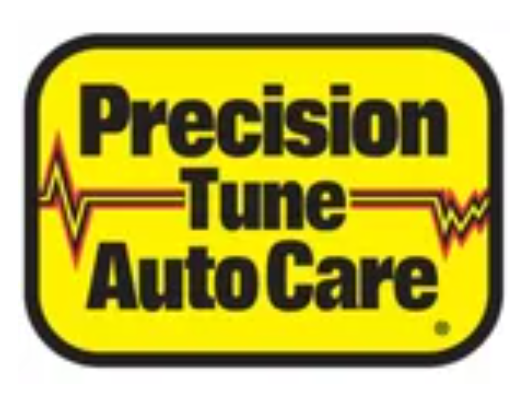Engine Maintenance Tips Every Athens Driver Should Know
Your vehicle’s engine is the heart of your car, and just like any hardworking component, it needs regular care to keep performing at its best. For drivers in Athens, where daily commutes, weekend getaways, and seasonal weather can put extra stress on your vehicle, understanding what is engine maintenance and staying ahead of problems is essential.
Whether you're a seasoned driver or someone who's just bought their first car, mastering engine maintenance will save you time, money, and unexpected breakdowns. Here are five key areas every Athens driver should know about.
1. Importance of Engine Maintenance
So, what is engine maintenance? Simply put, engine maintenance involves a series of routine checks and services to ensure your engine operates efficiently and safely. This includes oil changes, air filter replacements, fluid top-offs, belt inspections, and spark plug checks.
In Athens, where hilly roads and warm summers can put added pressure on your engine, staying current with maintenance is not just smart—it’s necessary.
Why It Matters:
- Extends Engine Life: A well-maintained engine can last 200,000+ miles or more.
- Improves Fuel Efficiency: Routine maintenance can improve gas mileage by up to 10%.
- Prevents Costly Repairs: Ignoring small issues today can lead to big bills tomorrow.
- Enhances Resale Value: Buyers favor vehicles with documented maintenance history.
Neglecting engine maintenance can lead to overheating, misfiring, or complete engine failure—issues no Athens driver wants to face on Highway 10 during rush hour.
2. Signs Your Engine Needs Maintenance
Your car is constantly communicating with you. Knowing what to look (and listen) for can help you detect engine trouble before it turns into a major repair.
Watch for These Warning Signs:
- Check Engine Light: It might seem obvious, but many drivers ignore this crucial warning. Always get it diagnosed promptly.
- Unusual Noises: Knocking, grinding, or hissing sounds could indicate serious engine problems.
- Poor Performance: Struggling to accelerate, decreased fuel efficiency, or rough idling are all red flags.
- Smoke or Steam: White smoke from the exhaust might mean coolant is leaking into the engine. Blue smoke can indicate burning oil.
- Oil Leaks: Puddles under your vehicle are a sign to check gaskets and seals.
If you notice any of these symptoms, it's time to visit a trusted Athens mechanic or check some components yourself if you’re comfortable.
3. DIY Engine Maintenance Tips
You don’t have to be a certified mechanic to keep your engine in good shape. There are plenty of tasks you can do to prevent long-term issues.
Easy Maintenance Tasks You Can Do:
Check and Change Engine Oil: Oil lubricates moving parts and keeps your engine clean. Check levels monthly and change it every 3,000–5,000 miles.
- Replace Air Filters: A dirty air filter chokes your engine. Swap it out every 12,000–15,000 miles or sooner in dusty environments.
- Inspect Belts and Hoses: Look for cracks, fraying, or soft spots. These components wear with time and can break without warning.
- Check Coolant Levels: Overheating is one of the biggest threats to your engine. Ensure coolant is topped off and clean.
- Monitor Battery Terminals: Corroded terminals can affect engine performance. Clean them with baking soda and water every few months.
- Tip for Athens Drivers: With our humid summers, it’s especially important to monitor your cooling system. Always carry extra coolant and keep an eye on your temperature gauge.
4. Benefits of Regular Engine Check-ups
While DIY maintenance is great, professional check-ups offer an extra layer of protection. A trained technician can spot problems the average driver might miss.
Professional Check-Up Benefits:
- Comprehensive Diagnostics: Mechanics use specialized tools to detect hidden issues.
- Software Updates: Modern engines rely on computer systems. Dealerships and shops often update firmware during inspections.
- Precision Tuning: Engines need fine-tuning to meet optimal performance standards.
- Warranty Compliance: Regular maintenance keeps your vehicle warranty valid.
In Athens, local auto repair shops often provide seasonal engine tune-ups tailored to Georgia’s climate, helping your engine adjust to changes in temperature and humidity.
5. Engine Maintenance Schedule Suggestions
Having a set maintenance schedule ensures you don’t overlook key tasks. Here’s a general guideline Athens drivers can follow—but always consult your owner’s manual for specifics.
Every 3,000–5,000 Miles:
- Change engine oil and oil filter
- Check and top off fluids (coolant, brake, transmission)
Every 12,000–15,000 Miles:
- Replace air filter
- Inspect spark plugs and wires
- Rotate tires (while not engine-related, it impacts performance)
Every 30,000 Miles:
- Inspect fuel system and injectors
- Check and replace PCV valve
- Service battery and terminals
Every 60,000–100,000 Miles:
- Replace timing belt (if applicable)
- Flush coolant and radiator system
- Perform full engine diagnostic
Local Tip:
Athens' mix of urban and rural roads can mean more frequent engine strain. Consider bumping up your oil change and air filter replacement intervals if you drive in dusty or high-traffic areas.
Final Thoughts
Understanding what is engine maintenance and staying on top of it is one of the best investments you can make in your vehicle—and your peace of mind. For Athens drivers, where changing seasons and unique driving conditions can stress your engine, a smart maintenance plan isn’t optional—it’s essential.
Whether you’re heading to UGA on a weekday or taking a scenic drive through the Georgia countryside for a round of golf at the University Golf Course, a well-maintained engine ensures you get there reliably. Use these engine maintenance tips as your go-to guide, and don’t hesitate to call a local expert when needed.
